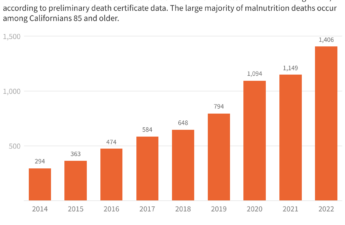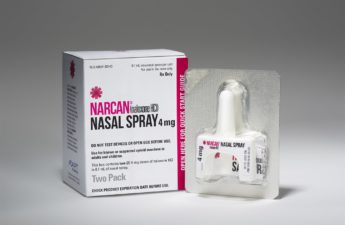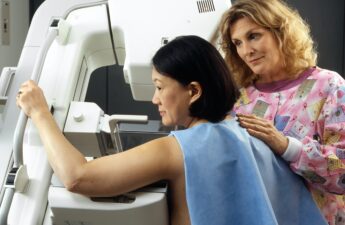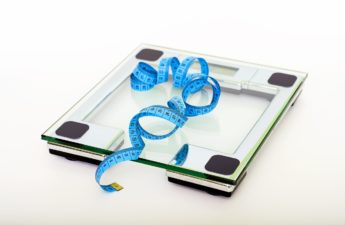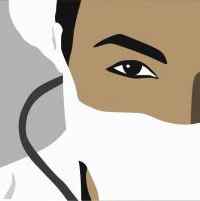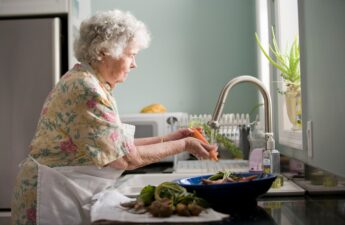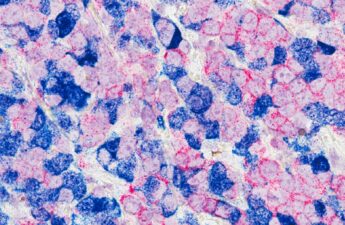In California the rate of elderly dying of malnutrition has accelerated, Phillip Reese reports.
Public Health — Seattle & King County describes its efforts to reduce overdoses
If you are a King County resident, order online to have free naloxone mailed to any address. It arrives in plain packaging to protect your privacy.
Most Americans Say They or a Family Member Has Experienced Gun Violence
Nearly 1 in 5 respondents , including 34% of Black adults, 18% of Hispanic adults, and 17% of white adults, said a family member had been killed by a gun.
What causes motion sickness?
A UW physician explains how to reconcile the mismatch in what your senses are telling your brain
The FDA’s rule change requiring providers to inform women about breast density could lead to a flurry of questions
Breast density matters for two reasons. Most importantly, dense breast tissue can hide cancer on a mammogram. About 40% of breast cancers will go unseen on mammography in the densest breasts, labeled “extremely dense breasts,” and about 25% will go undetected in heterogeneously dense breasts.
Why Finland is the happiest country in the world – an expert explains
Finland comes out top, followed by Denmark and Iceland. Just why Finns are happier than others comes down to a number of factors including lower income inequality (most importantly, the difference between the highest paid and the lowest paid), high social support, freedom to make decisions, and low levels of corruption.
Eating disorders are deadly: What are they, who’s at risk, and what can be done about it
Adolescence is also when eating disorders have the greatest negative effects on health. Five per cent of the general population in North America will suffer from an eating disorder in their lifetime, but few people seek treatment. The prevalence of eating disorders and struggles to access help highlight the need to increase awareness and decrease stigma.
Does exercise help you lose weight?
Exercise will help you lose weight and prevent you putting on weight again – it’s just that it won’t help you achieve your weight loss goals in isolation.
Unconscious biases continue to hold back women in medicine, but research shows how to fight them and get closer to true equity and inclusion
Implicit bias is any unconscious negative attitude a person holds against a specific social group. These unconscious biases can affect judgment, decision making and behavior. Implicit bias is often one of the underlying issues that leads to discriminatory practices or harassment that diversity, equity and inclusion policies are meant to address.
How Cigna Saves Millions by Having Its Doctors Reject Claims Without Reading Them
A Cigna algorithm flags mismatches between diagnoses and what the company considers acceptable tests and procedures for those ailments. Company doctors then sign off on the denials in batches, according to interviews with former employees who spoke on condition of anonymity.
COVID origins debate: what to make of new findings linking the virus to raccoon dogs
While this latest data is one additional piece of the puzzle that supports an origin of the pandemic linked to Wuhan’s animal trade, it is unlikely to provide irrefutable evidence.
Being ‘Socially Frail’ Comes With Health Risks for Older Adults
Social frailty is a corollary to physical frailty, a set of vulnerabilities (including weakness, exhaustion, unintentional weight loss, slowness, and low physical activity) shown to increase the risk of falls, disability, hospitalization, poor surgical outcomes, admission to a nursing home, and earlier death in older adults.Essentially, people who are physically frail have less physiological strength and a reduced biological ability to bounce back from illness or injury.
Federal Study Calls U.S. Stillbirth Rate “Unacceptably High” and Recommends Action
Although many people, including some medical providers, believe that stillbirths are inevitable, research shows that as many as 1 in 4 may be preventable.
Breast cancer: progestogen-only and combined birth control both increase risk – here’s what you need to know
Until now, it was thought that only the combined hormonal pill carried a greater risk of breast cancer. But a recent study suggests that the progestogen-only pill (also known as the mini pill) and other forms of hormonal contraception also carry the same increase in breast cancer risk as the combined pill.
Frozen Organic Strawberries and a Tropical Fruit Blend Recalled Because of Hepatitis A Risk
Several brands of frozen organic strawberries and one tropical fruit blend are being recalled following a hepatitis A outbreak that’s sickened at least five Washington residents.
